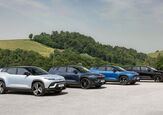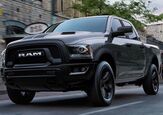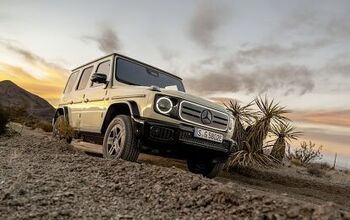Toyota Tundra Rumor Mill Swells With Hybrid Talk

While Toyota remains tight-lipped about its next-generation Tundra pickup, the online commentariat is abuzz with rumors these past several months. The automaker holds no aspirations of unseating the Ford F-150 as king of the full-size truck segment, but numerous reports suggest Toyota at least wants to offer something on par with its modern domestic rivals. Perhaps even class-leading.
The rumors include the possibility of the Tundra sharing its new platform with its midsize Tacoma stablemate, the adoption of an air suspension system (or perhaps even an independent rear setup), and now this: a hybrid turbo drivetrain.
Having debuted in 2006 for the 2007 model year, the current-gen Tundra allowed ample time for speculation to build up. From TFL Truck comes the latest, with a company insider claiming high-end versions of the upcoming Tundra will adopt a hybrid drivetrain employing a turbocharged 3.5-liter V6.
That’s the engine found in Lexus’ new-for-2018 LS sedan, which generates 416 horsepower and 442 lb-ft of torque without the assistance of electricity. The source claims the truck’s hybrid setup is similar to the wildly complex Multi Stage Hybrid System found in the LS 500h, with output projected to be in the area of 450 hp and 500 lb-ft. Toyota is reportedly aiming for a fuel economy figure of 30 mpg or higher. That’s a highway figure, surely.
If true, Toyota wouldn’t have the fledgling hybrid truck market all to itself. Ford’s F-150 hybrid should debut well before the next-gen Tundra arrives in 2021 or 2022. Apparently, the cab and bed of the new Tundra have yet to be finalized, so don’t expect to see a surprise early introduction.
While the Tundra boasts exceptional buyer loyalty, sales are falling off as the industry contracts. Volume is down 5.1 percent through the end of April. It’s the opposite situation for the Tacoma, which can’t seem to stop finding new buyers.
Adding a high-MPG, high-tech Tundra variant would help Toyota generate buzz for an often overlooked model that currently doesn’t even offer a V6. As Toyota left its full-sizer to wither on the vine, focusing instead on admittedly lucrative new crossovers (as well as sedans), rivals began offering turbo sixes, light-duty diesels, and even a turbo four. Compared to its Ford, GM, and Ram competitors, the Tundra is beyond ancient, boasting a porky curb weight, an outdated interior, and fuel economy that fails to reach 20 mpg in any configuration.
The changes made to the next-gen model will need to be extensive and meaningful.
[Image: Toyota]

More by Steph Willems
Latest Car Reviews
Read moreLatest Product Reviews
Read moreRecent Comments
- Kjhkjlhkjhkljh kljhjkhjklhkjh Just looking at the PLUMETING cost of used tesla's (28k for a 3P ex) I contest the ''gubberment'' argument. If anything the gubberment is his BEST AND ONLY ALLY because with the increasing emissions regulation a cheap tesla is a hell of a buy.but as previously stated .. were in a saturated market for EV's right now.
- SCE to AUX This must have been a very interesting event.Of course, 'sustainability' may come with a price tag.
- Redapple2 TTAC ate my post. 2 paragraphs. Hit Send. No post apprears. 3rd time. I ll write less. Becoming the KMart of sites?
- SCE to AUX The Supercharger network is one Tesla product universally admired, and they got rid of that team? Who will do this work now?As I've said before, Mr Musk needs to go.
- Tane94 FWD models only come with a CVT -- Huge mistake, Mary Barra.


































Comments
Join the conversation
Time to add D4S injection (which equivalent dual port and direct injection Ford already has on its F150 engines) to that Toyota 5.7l DOHC. New cylinder heads required as well. The 5.0l Coyote V8 is more advanced than this lumbering old giant. Adding the Lexus LS hybrid setup isn't a bad idea. With the low sales of those things, some investment needs to be recouped by churning out a few more 3.5 V6 twin turbos.
I'm sure that 30mpg number is the city number as that is where most hybrid designs shine.